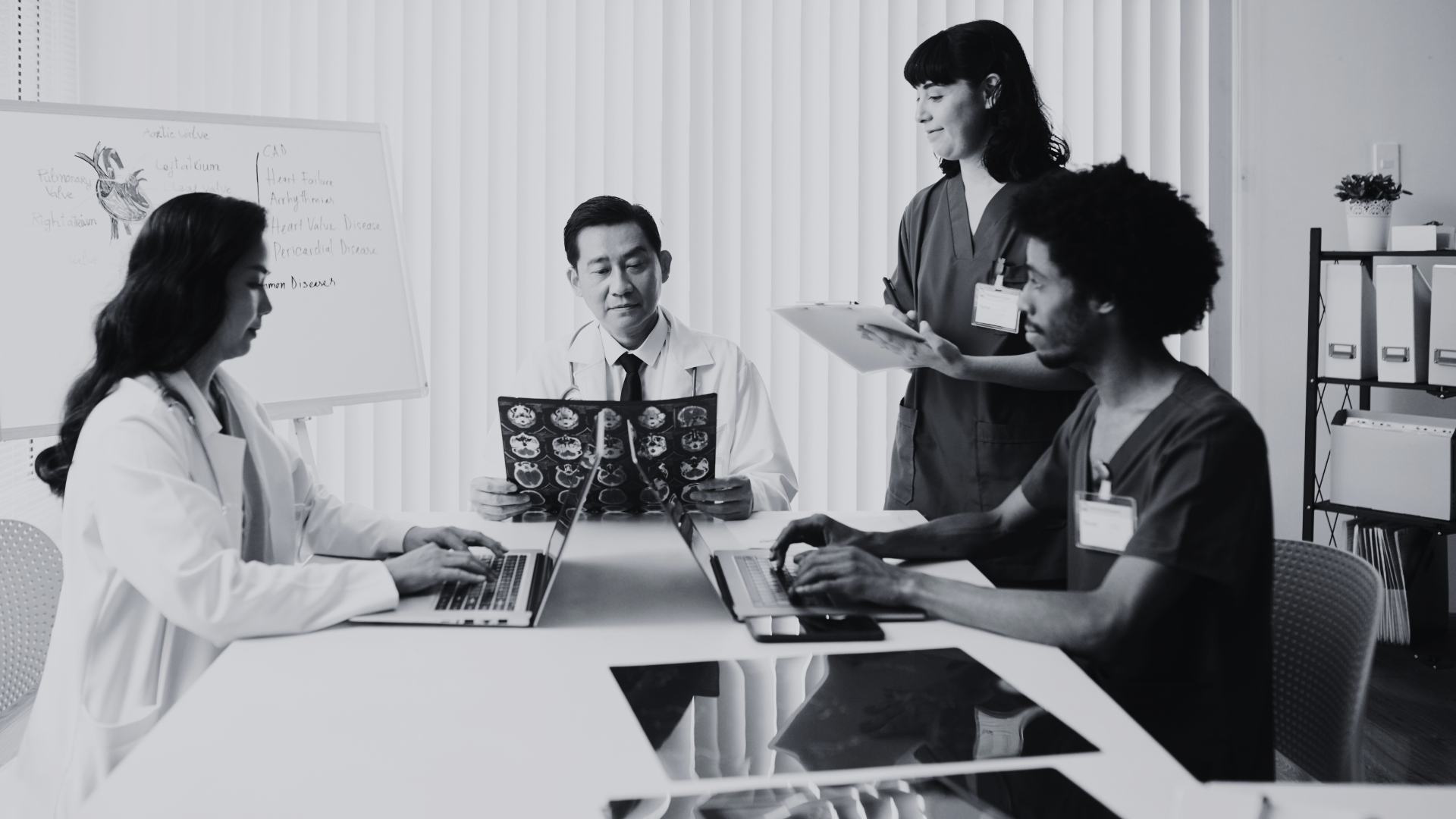Future-Proofing your Workforce: Upskilling and Reskilling Trends in Singapore
In a world where change is the only constant, staying ahead of the curve isn’t just an advantage—it’s a necessity. For companies in Singapore, particularly in the healthcare sector, upskilling and reskilling are no longer just buzzwords but vital strategies to ensure a resilient and future-ready workforce.
The Changing Face of Work in Singapore

Singapore has always been at the forefront of innovation, and its workforce is no exception. As industries evolve, so do the skills required to thrive. With rapid advancements in technology, from AI to automation, many traditional roles are being redefined or phased out. For instance, the healthcare sector is witnessing a transformation with telemedicine, electronic health records (EHRs), and AI-driven diagnostics becoming mainstream.
However, this transformation doesn't mean that jobs are disappearing; rather, they are evolving. New roles are emerging, and existing ones are being reimagined. For example, the rise of digital health has created a demand for professionals skilled in health informatics, data analysis, and digital patient engagement. In response, the emphasis on upskilling and reskilling has never been more crucial.
Upskilling vs. Reskilling: What’s the Difference?

Before diving into the trends, let’s clear up the jargon:
- Upskilling is about enhancing the skills of employees in their current roles. It’s like adding new features to an existing app, making it more versatile and capable.
- Reskilling, on the other hand, involves training employees for entirely new roles. Think of it as giving them a brand-new operating system to explore a different domain altogether.
Both approaches are essential, and a balanced strategy of upskilling and reskilling can help organizations navigate the choppy waters of today’s job market.
Trending Upskilling and Reskilling Strategies in Singapore

- Micro-learning and Bite-Sized Training: Singaporean companies are increasingly adopting micro-learning—short, focused bursts of training that can be easily consumed by employees. This method is particularly effective in the healthcare sector, where professionals can quickly learn new procedures or technologies without taking time away from patient care. Interactive apps and online platforms offer bite-sized lessons that can be accessed anytime, making learning both fun and flexible.
- Gamification of Learning: Turning learning into a game is a trend that’s gaining traction. Gamification involves incorporating game-like elements such as points, badges, and leaderboards into training programs. This approach is not only engaging but also motivates employees to complete courses and retain information better. Imagine doctors and nurses in Singapore competing to top a leaderboard while mastering the latest in medical technology—it’s learning with a dose of healthy competition!
- Cross-Industry Collaborations: With the lines between industries blurring, cross-industry collaborations are becoming a powerful tool for reskilling. Healthcare professionals, for example, are now learning from tech giants like Google and IBM to better understand AI and big data. These collaborations open new avenues for innovation and ensure that Singapore’s workforce remains versatile and adaptable.
- Personalised Learning Pathways: One-size-fits-all is out, and personalised learning is in. Singaporean organizations are leveraging AI to create customised learning pathways for their employees. By analyzing data on individual strengths, weaknesses, and career goals, companies can tailor training programs to fit each employee’s needs. In the healthcare sector, this could mean personalised modules for mastering specific medical devices or procedures.
- Focus on Soft Skills: As much as technical skills are important, soft skills like communication, empathy, and leadership are equally crucial. The healthcare sector, in particular, thrives on these skills. Singapore’s up-skilling programs are increasingly incorporating modules on emotional intelligence, teamwork, and patient-centric care, ensuring that the human touch remains at the heart of healthcare.
Why Healthcare Needs Upskilling and Reskilling More Than Ever

The healthcare industry in Singapore is at a crossroads. With an aging population and increasing demand for high-quality care, the sector needs to adapt quickly. Upskilling and reskilling offer a way forward, enabling healthcare professionals to stay current with the latest technologies and methodologies.
For instance, as telemedicine becomes more prevalent, healthcare workers need to be adept at using digital platforms for consultations, diagnosing patients remotely, and managing electronic health records. Upskilling in these areas ensures that healthcare remains efficient, accessible, and patient-focused.
Similarly, reskilling programs can help healthcare professionals transition into new roles. A nurse might be reskilled to become a healthcare data analyst, or a doctor might take on a leadership role after undergoing management training. These transitions not only benefit the individuals but also address the evolving needs of the healthcare system.
Making Upskilling and Reskilling Fun and Engaging

Learning doesn’t have to be a chore. In fact, when done right, it can be an enjoyable and fulfilling experience. Here are some ways Singaporean companies are making upskilling and reskilling more engaging:
- Interactive Workshops and Hackathons: Hands-on experiences like workshops and hackathons allow employees to apply new skills in real-time. For instance, a hackathon might challenge healthcare workers to develop innovative solutions to common medical problems, combining creativity with practical learning.
- Social Learning Platforms: Social learning platforms foster a sense of community among learners. Employees can share insights, discuss challenges, and collaborate on projects, turning learning into a social activity rather than a solitary task.
- Recognition and Rewards: Recognizing and rewarding progress keeps employees motivated. Whether it’s through certificates, public recognition, or even tangible rewards, acknowledging effort goes a long way in making learning a positive experience.
Embracing the Future

As Singapore continues to lead the way in innovation, its workforce must evolve alongside. Upskilling and reskilling are not just trends—they are essential strategies for future-proofing careers, especially in critical sectors like healthcare. By embracing these strategies, Singapore can ensure that its workforce remains agile, resilient, and ready to tackle the challenges of tomorrow.
So, whether you’re a healthcare professional looking to expand your skill set or an organization aiming to stay competitive, now is the time to invest in learning. After all, the future belongs to those who prepare for it today.
Sources:
- SkillsFuture Singapore: https://www.skillsfuture.gov.sg/
- Ministry of Health, Singapore: https://www.moh.gov.sg/
- Singapore Management University – Centre for Future-Ready Graduates: https://cfgr.smu.edu.sg/
- LinkedIn Learning Blog on Upskilling: https://www.linkedin.com/learning/
- World Economic Forum – Future of Jobs Report: https://www.weforum.org/reports/the-future-of-jobs-report-2023
Read More





